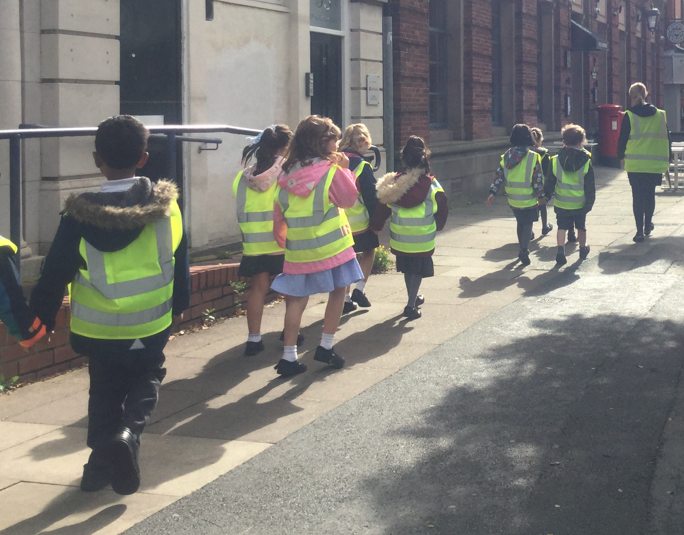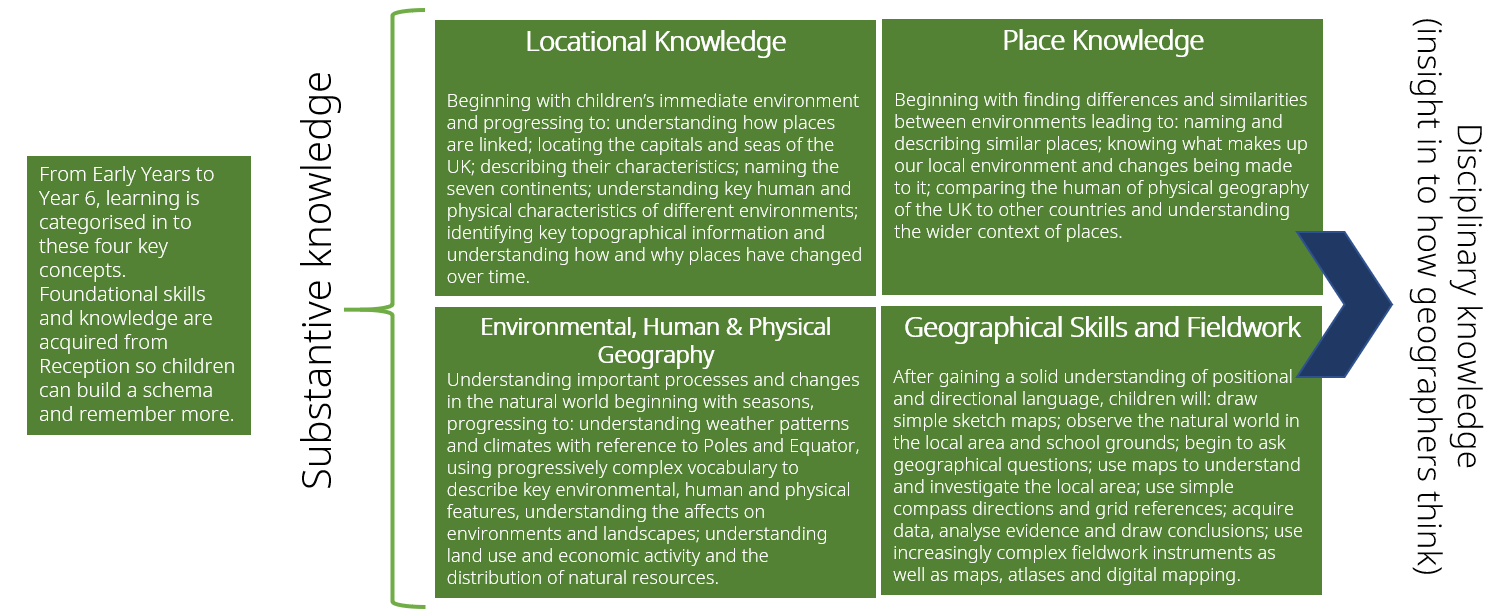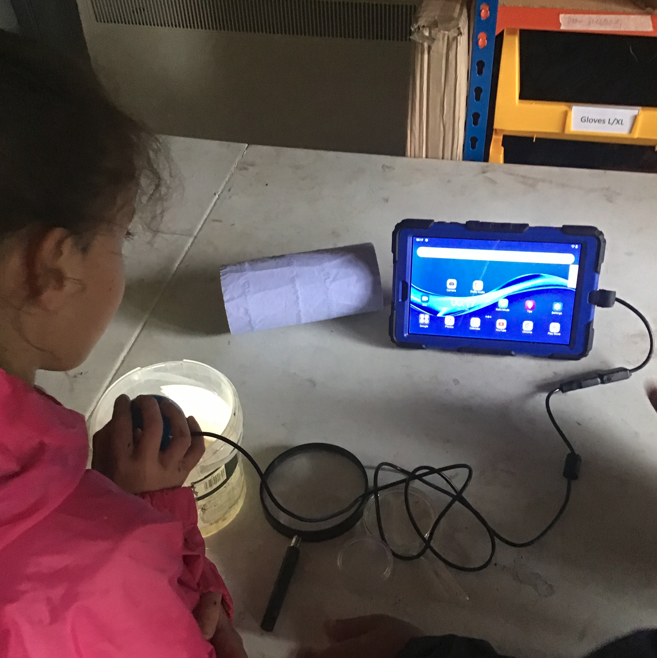Geography
“The study of geography is about more than just memorising places on a map. It’s about understanding the complexity of our world, appreciating the diversity of cultures that exist across continents. And in the end, it’s about using all that knowledge to help bridge divides and bring people together."
- Barack Obama
A clearly mapped journey, starting in Early Years
Our curriculum is bespoke to our children, school and local area, drawing on the best resources of our locality has to offer. Geography is taught from Reception (as part of the 'Understanding the World' strand of the EYFS framework) through to Year 6. Our termly topics are based around either a historical or geographic line of enquiry; these topics have been chosen and sequenced carefully so skills are revisited and knowledge sticks. We have strong cross-curricular links, for example where Earth and Space is taught in Year 5, children will learn about time zones in geography. Learning in geography is relevant and purposeful; important global and local issues are highlighted, and we encourage our pupils to take action, becoming a force for good in society.
How learning is sequenced

Our curriculum is organised so children can always draw on prior knowledge whilst learning about more complex ideas. We focus on positional and directional language in EYFS, local area studies provide a solid foundation for place knowledge, seasons and weather patterns serve as an accessible introduction to more complex phenomena and fieldwork skills beginning in Reception will equip children with a strong schema for KS2.
In Years 3 & 4, children can apply their locational and place knowledge to new and more varied environments. Human and physical geography progresses into learning about land use, economic activity, changes to environment over time and the impact these have on local populations. Children travel further to carry out fieldwork – to the River Mersey and the city centre – trying more advanced fieldwork techniques and analysing data with more rigour. Children learn about deforestation and climate change and we instil a sense that they can have an impact and pursue meaningful action within and beyond school.
Our curriculum should have equipped children with solid foundations by this point and children should be ready to learn about a range of more complex phenomena across every continent. Through case studies of migration from Guatemala, the building and impact of the Grand Ethiopian Renaissance Dam and Three Gorges Dam and exacerbated coastal erosion in Sri Lanka, we emphasise the wider impacts of local changes and stress the interconnectivity of all of our key concepts. Fieldwork progresses further requiring children to use more advanced techniques and equipment and taking on the role of geographers in our work around Manchester City Council’s local development plan.
All of our objectives tie in to the same four Key Concepts - 'Locational Knowledge', 'Place Knowledge', 'Environmental, Human & Physical Geography' and 'Geographical Skills and Fieldwork'. These are revisited and built upon each year.

Fieldwork
“Fieldwork is knowledge in and of itself and is one element of the geography curriculum that particularly motivates and interests pupils."
- C Komoto, ‘Moving toward a signature pedagogy in geography. A close reading of the landscape’
Fieldwork skills and opportunities are woven in to every year group's geography curriculum. Our field work overview details the objectives, opportunities and techniques that are covered in each phase. Children are provided with purposeful fieldwork activities every year; each fieldwork activity clearly builds on what has come previously and fieldwork takes place across a wider area, and involves more complex techniques, as children progress through the curriculum.
work overview details the objectives, opportunities and techniques that are covered in each phase. Children are provided with purposeful fieldwork activities every year; each fieldwork activity clearly builds on what has come previously and fieldwork takes place across a wider area, and involves more complex techniques, as children progress through the curriculum.
Fieldwork begins in our school grounds, making observations of what is around us and representing this in simple sketch maps. This leads to more challenging observation techniques in Years 1 & 2, requiring children to make suggestions about how to improve our school grounds. We venture more in to our local area in Years 1 & 2 before travelling further in KS2 to the City Centre and the Rivers Mersey and Bollin. Each year, children will use increasingly complex tools and techniques as they acquire more in-depth data in fieldwork sessions. This is all detailed in our Progression in Fieldwork Skills document.
'Thinking like a geographer'
Through many of our geography topics, we emphasise how interconnected certain concepts are. When shown rivers, weather patterns or volcanoes for example, we consider the impact of these not just on the physical environment but the people living locally and their response to these events. We then consider potential impacts from these phenomena across a wider context, for example in our Year 5 migration topic or our work on climate change.
Pupils are encouraged to ask questions such as ‘where is this place?’ and ‘why is it here and not there?’ and ‘how did it get like this?’ and ‘what is the impact of this?’ Our curriculum aims to provide children with the knowledge required to habitually ask these questions and, by providing children with an ever-strengthening schema, go some way to answering them.

